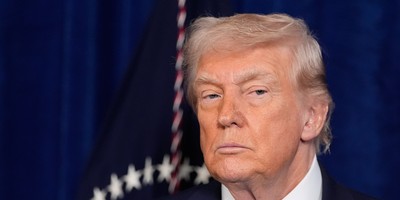With the Supreme Court’s decision in National Federation of Independent Business v. Sebelius, Obamacare has achieved its first milestone: The repudiation of logic, the Orwellian assertion that A both is and is not A.
The massive healthcare package, officially titled the Patient Protection and Affordable Care Act, requires that individuals buy medical insurance. The law imposes a fine on those who fail to purchase the government-approved and regulated insurance.
The legislation refers to this financial penalty 18 times. It never once refers to it as a tax. (Note: you can find tax hikes aplenty elsewhere in the colossal new law.)
Its principal booster, President Barack H. Obama, repeatedly insisted mandate’s penalty wasn’t a tax. And as Justice Antonin Scalia wrote in his dissent, “We have no doubt that Congress knew precisely what it was doing when it rejected an earlier version of this legislation that imposed a tax instead of a requirement-with-penalty.”
But Chief Justice John Roberts, a George W. Bush-nominee, joined the four liberal justices to declare that what was not a tax, when proposed and passed, now is a tax — so that it could be declared constitutional under Congress’s taxing power. Roberts explains:
Congress did not intend the payment to be treated as a “tax” for purposes of the Anti-Injunction Act. The Affordable Care Act describes the payment as a “penalty,” not a “tax.” That label cannot control whether the payment is a tax for purposes of the Constitution, but it does determine the application of the Anti-Injunction Act.
Only were Obamacare’s mandate not a tax could it be litigated at this time under the Anti-Injunction Act. Accordingly, the majority says it is not a tax. But it can only be ruled constitutional if it is a tax.
Recommended
So, the High Court calls it a tax and not a tax at the same time.
The dissent called this “remarkable.”
Stronger words spring to mind.
Scalia, writing for himself and Justices Kennedy, Thomas and Alito, pointed out that before this ruling the U.S. Supreme Court had “never — never — treated as a tax an exaction which faces up to the critical difference between a tax and a penalty, and explicitly denominates the exaction a ‘penalty.’”
Despite the sea change in nomenclature, some take comfort. “We are not worse off from a jurisprudential standpoint, and Congress gained no new power,” Jennifer Rubin argued online at the Washington Post, “we merely witnessed an intellectually disingenuous analysis of the statute. We are protected from abuse of the taxing power by public opinion (which generally opposes tax hikes).”
Not exactly. If we were truly protected from unpopular congressional enactments, we would not now be discussing Obamacare, since the majority of Americans opposed it before and during passage, and oppose it to this very day.
Many speculate on whether Chief Justice Roberts switched his vote, late in the game, from overturning the entire law to upholding it in virtually its entirety. Some say he was putting the Court first, worried about the public esteem for a body that has been condemned as partisan. Yet, the job of an umpire, an honest one, is to call the balls and strikes as he sees them, not as the crowd wishes.
To make matters worse, in this case it was the Washington crowd that threatened to boo, not the American people.
So, like Charlie Brown attempting to kick the football held by the perfidious Lucy, a conservative Republican-appointed justice votes with the liberal justices appointed by Democrats, yanking the ball away at the last moment.
What now?
After listening to me argue with the television set, my daughter asked me if this decision could be appealed. “No,” I replied. “The Supreme Court is the highest court in the land.”
But I stand corrected. As the great legal and constitutional scholar Robert G. Natelson told a crowd gathered outside the state capitol in Denver, Colorado:
It is commonly taught in law schools that the highest authority on the United States Constitution is the United States Supreme Court. . . . The highest authority on the United States Constitution are we, the people of the United States. Yesterday’s opinion is subject to appeal and we are the highest court of the land. The hearing on this case is November and the Supreme Court will be reversed.
If we want a Constitution of liberty, we will have to shove it down the throats of our leaders in the imperial capital.

























Join the conversation as a VIP Member